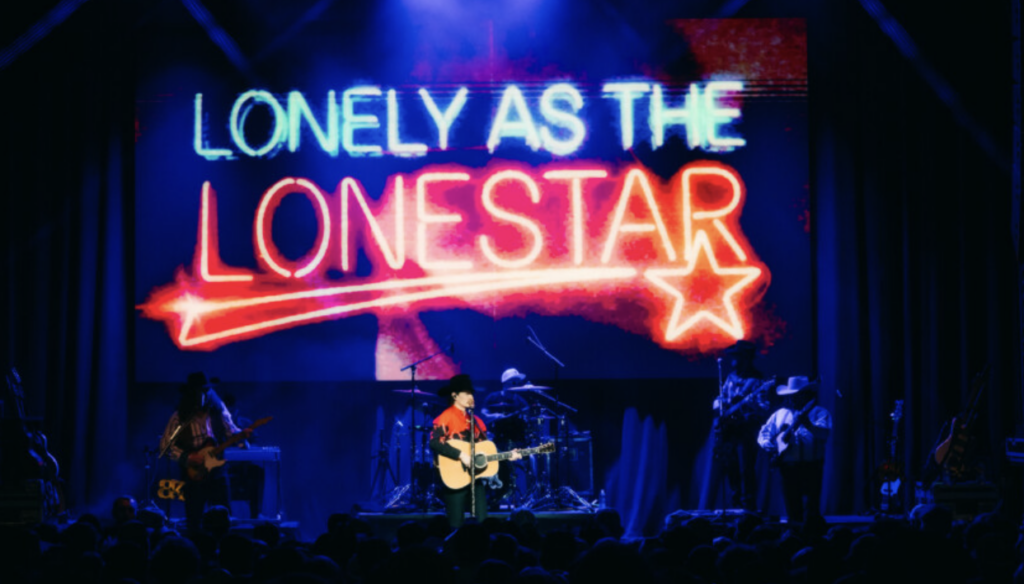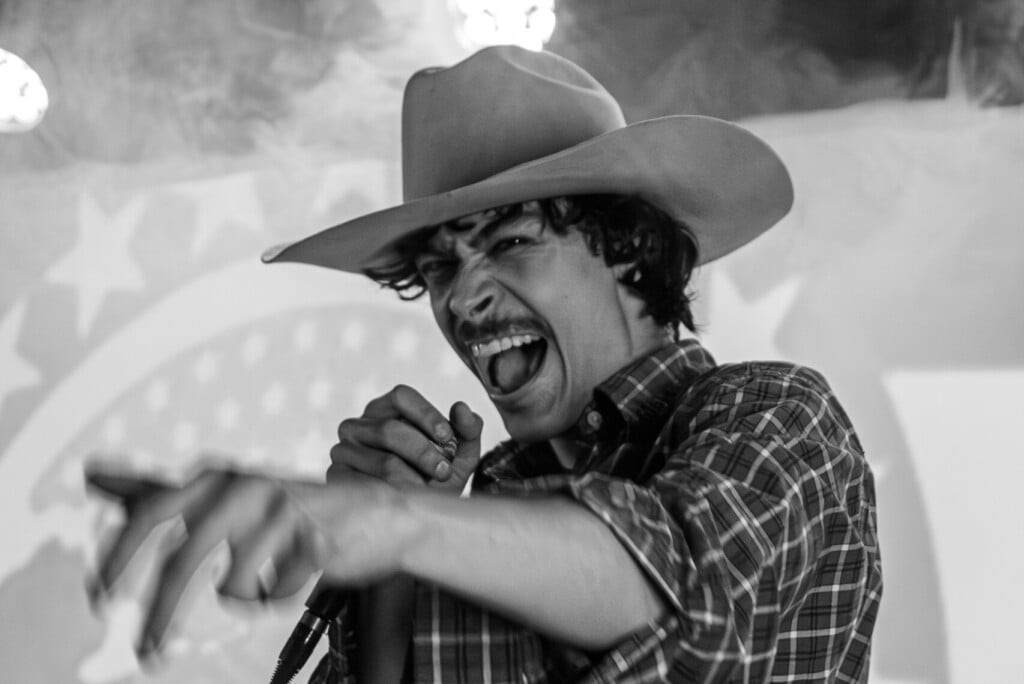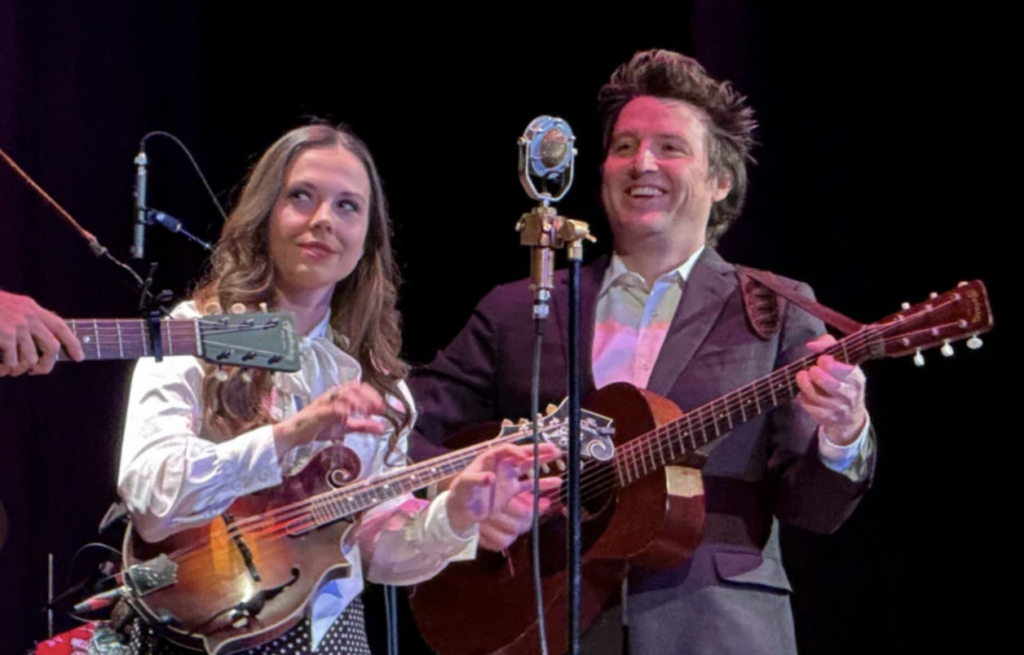Graham Parker on the songwriting process and Thursday’s Knuckleheads show
Over the years, British musician Graham Parker has worked with an incredible number of musicians to craft his catchy brand of rock ‘n’ roll. From the five albums in five years streak of brilliance, which kicked off his career with Graham Parker & the Rumour, to teaming up with the Figgs, and now on to his releases with Graham Parker & The Goldtops, Parker’s work has always married tuneful pop with punk rock energy. Call it power pop, pub rock, or what have you, the fact of the matter is that Graham Parker knows how to make music to make you think, Ooh, who’s that? as soon as you hear it.
Graham Parker comes to Knuckleheads this Thursday, April 25, and we spoke with him ahead of the show to discuss his wide-ranging and lengthy career.
I am just constantly amazed at the width and breadth of your discography. Is it because you’ve had a really great series of collaborators through the years? It seems like you’ve gotten to work with as many people as you could possibly want to.
Yeah, I got quite a collection really, but essentially when it comes to doing albums, I’m just writing the songs, which is a lonely job. That’s never shared. That’s the one thing you’re going to know there.
The idea of collaborating on songwriting makes me feel queasy, but it’s popped up from time to time. I don’t see the point of it really when I can complete whole songs and I know they’re good from beginning to end, and I know they’re what I wanted. So why should I share this? But I have shared a lot with musicians and engineers, and there’s been other moments of stuff, like working with people who are quite well-known and what have you—Lucinda Williams doing a duet with me on one of my albums and Bruce Springsteen way back when doing some backing vocals—but basically it’s me and working musicians and engineers, who I basically use as co-producers these days, but they’re engineers and I’m just in charge of the production and it’s the vision of where I’m going with each song.
I know it so well now, I’ve done it a long time. I feel as though I’ve sort of done everything. If I was to quit tomorrow, I’d be pretty okay. I wouldn’t be thinking, Oh my God, what did I miss? I mean, there’s been a lot and I’m not getting any younger, so please come and see me whenever you can, because you never know.
You have gotten to do everything. You’ve written books. You’ve been in a Judd Apatow movie, This Is 40. As you’ve gotten to do like things like this that are more than being a rock and roller, what does getting to be in a film or writing a book offer you as a creative person?
Well getting to be in that movie was totally up to Judd, and I wasn’t going to say no. Let’s put it that way. So that’s something I didn’t choose and came along just when I reformed my original backing band, the Rumour after over 30 years. And I said to him, “Well, why don’t you have the Rumour in it, as well?” And he did, so we all got to start our reunion on an amazingly interesting and strange footing.
Being in a movie even held the album up for six months longer than we would have wanted to, so it could coincide with it. So that was none of my choice. The album, of course, were my songs and all that stuff that, but as for writing those two books, I mean, basically, there was a novel [The Thylacine’s Lair] and the short story collection [Carp Fishing on Valium]. That was because I just couldn’t stop myself. It was just like I had an overheated imagination for writing.
There I am in whatever it was—my forties or something by that time—and I’d just written a lot. There’s been plenty of albums already, let alone what I’ve got to now, which is probably 25 studio albums, but I still had all this other stuff to express that was taking sort of a simulation of my life, and then basically a grain of reality and blowing it up out of all proportion.
That’s what fiction is quite often, and it’s the same with songwriting quite a lot of the time. You ham it up a bit. Let’s face it. I mean, it’s not that bad. We do tend to ham it up for the sake of drama a lot of the time and it was the same with fiction writing. I found it was like real life, but you explode it.
You can go anywhere. Because it’s fiction, you’re not restricted. I get a lot of questions about memoirs. I feel in the book, Carp Fishing on Valium, I’m in the short stories. I already did that, but it was like from Superman’s Bizarro world, and it’s much more fun than reality. It’s an awful lot more fun, really, because reality, what is it? It’s in here anyway. We create our own.
So, you know, the memoirs thing, I find it a bit bogus, but you never know what’s around the corner. As I say, that that’s the thing I’ve never known. One of those showbiz sayings is, “Stick around long enough and anything can happen,” and there I was in a Hollywood movie and starting a tour with red carpet stuff and all this. It went to number three at the box office and I did all these great things after that movie.
I’d be flown to Hollywood to speak somewhere and go into a big theater in New York, packed out with people with the other actors talking about the movie and talking about music and movies, feeling woefully unqualified, but it was great fun. Now I’m back to my usual. Water finds its own level and I’ll be back in America very soon doing a series of solo shows.
That’s one thing I never really imagined years ago—that I could really expound on and make work. It’s quite a satisfying way musically and performance wise, the solo performance thing. I’ve got very good at it and got very good with crowds. It helps if they know who you are and what you’re doing, but you never know where you’re going to play. But mostly I’ve got markets where people know that it’s going to be what it’s going to be. It’s going to be good.
Your most recent album with The Goldtops is a very big affair, and I know you did a short tour of the States last year when it released, and I was curious as to how you approach these songs, since I guess they don’t really change because you start out writing them yourself? Is it more that they’re going back to their original form when you perform solo?
Oh, no. Well, they could. It’s interesting. The original form, I think, when I do those demos, is just me on a cell phone these days, or I’ll go into a small studio—That’s a better sound—and play solo new songs, and I’ve got them pretty much 95% perfect where I want them, the arrangements.
I’ve been through it all. I’ve rejected, I’ve rewritten, I’ve worked at it, and I’ve got the songs where I want them, so by the time I’m playing solo, they’ve been done almost the way that I wrote them solo, the way I created them. They’ve already been done like that with a band playing them, so if I’m playing them solo, now they get a different feel that wasn’t there in the first place, but essentially, they are what they are. But it’s just great to expound on them and and explain a few little bits and pieces to people. People generally find that interesting—a few comments I can make about songs and where they came from.
For instance, “Last Stretch of the Road” is a track on Last Chance To Learn The Twist from whence the line, “Last chance to learn the twist” comes from and I’ve been announcing that usually as this song is about our inevitable, painful, lonely, and putrescent death, which generally tears an audience up. It’s the last stretch of the road. You better learn the twist now before you can’t. I explained a few things about songs like that.
And then, “The Music of the Devil,” I haven’t played that live apart from with the bands. Playing it solo, I’m working on it now. It’s morphing. It’s really morphing into something, ’cause people don’t really understand what that’s about, I don’t think. I have people saying, “That’s a bit weird, that you were devil worshiper,” or something.
It’s obvious to me, but it might not be to an outside listener that it is about rock and roll, which was the devil’s work back in the days of anything to get at the Black people and hammer them: “They’re producing this music in America, which is dark and it’s called the blues.” The blues had a baby, and they named it rock and roll, and it was all pretty seen as “evil race music” and it was the usual “Burn the record” crowds—the evangelistic feeling of there’s something very wrong—and unless you’re just promoting Mr. Jesus, these songs sounds like there’s sex involved.
That song was basically sort of a history of the music of the devil and how you can’t stop it. The white people picked up on it, of course and you’ve got the Rolling Stones. They’re pretty evil right there.
The last track on the Sun Valley EP that came out shortly after Last Chance to Learn the Twist has you covering Frank Sinatra’s “That’s Life.” How does it feel to reach a point in your career where you can cover Sinatra and have the gravitas necessary to sing those words, especially with a song like that?
Well, it’s an interesting thing because years ago I was half-heartedly going to an evening college course to do with my first ever job. I was like 16 then. That’s when they chucked us out of school. If you were like me and these uneducated victims of class system education in Britain, you were out working when we were 16, if not 15.
Me and this kid who was doing it as well, we’d go to a pub after in this very provincial kind of English town, with cobble streets and on the jukebox was “That’s Life,” and I think I’d already heard it, because before the Beatles and Stones, you’d be listening to transistor radio or wireless sets, and hear American music.
There’d be Bing Crosby, there would be Frank Sinatra, Nat King Cole, Doris Day, Danny Kaye. There’s a lot of those songs I loved and this one was on jukebox and every time we were there once a week, we played over and over again. I loved it. And I thought, One day, if I become a musician—I wasn’t even playing guitar at the time. I was just a working guy, not paying enough attention to what I had, which was some talent. I knew it, but I didn’t do anything with it. But I thought, One day, I’ll do that–that completely rash feeling, but there it is. It’s like age 16 to the age of 73 and I’m finally doing that song. Sometimes it takes a long time to get around to it.
Also on this tour I did with The Goldtops in the UK, another one I pulled out the bag, I said, “Okay, I want to do ‘Boogie Shoes’ by KC and the Sunshine Band.” It wasn’t punk and new wave—my favorite groups in the ’70s was KC and the Sunshine Band and there was a band, Heatwave, “Boogie Nights.” I mean, that’s the stuff I love. The punks hated disco. I thought it was better than all of it so it’s only fitting that I did a KC song.
I’ve been playing it solo. I was saying, “I can pull this off in America solo. Why not? I’ll give it a go.” These songs are in my blood, so why not try and play them and say, “Oh, it can work.” It can really work. Maybe the cover version album will come one day. It’s just the songwriting. Every artist wants to do a cover album and I would like to, but the songs get in the way. I keep writing songs. I write a song and think, Well, what would 11 other songs be like working with this song? It’s like, “No, don’t do it, man. It’s going to be a long haul. There’s other songs that have already been written. You could have an easy time.” Of course, you don’t get any publishing royalties, but you don’t get them anyway because records don’t sell anymore. So what’s the point?
Actually, what I should be doing is making albums—just me on a guitar boring the hell out of people instead of spending all this money on musicians in top studios like Rack Studios up the road here at St. John’s Wood and making these records in the age of terrible streaming rates.
It’s not easy to write songs. It’s not easy recording them. It’s a hard job and you got to do it right. That’s why, because you got paying customers, still. In any era, there’s still people who buy the albums and they stream whatever, they’re spending that tiny amount of money, but it’s a job worth doing properly.
Graham Parker comes to Knuckleheads this Thursday, April 25. Details on that show here.





